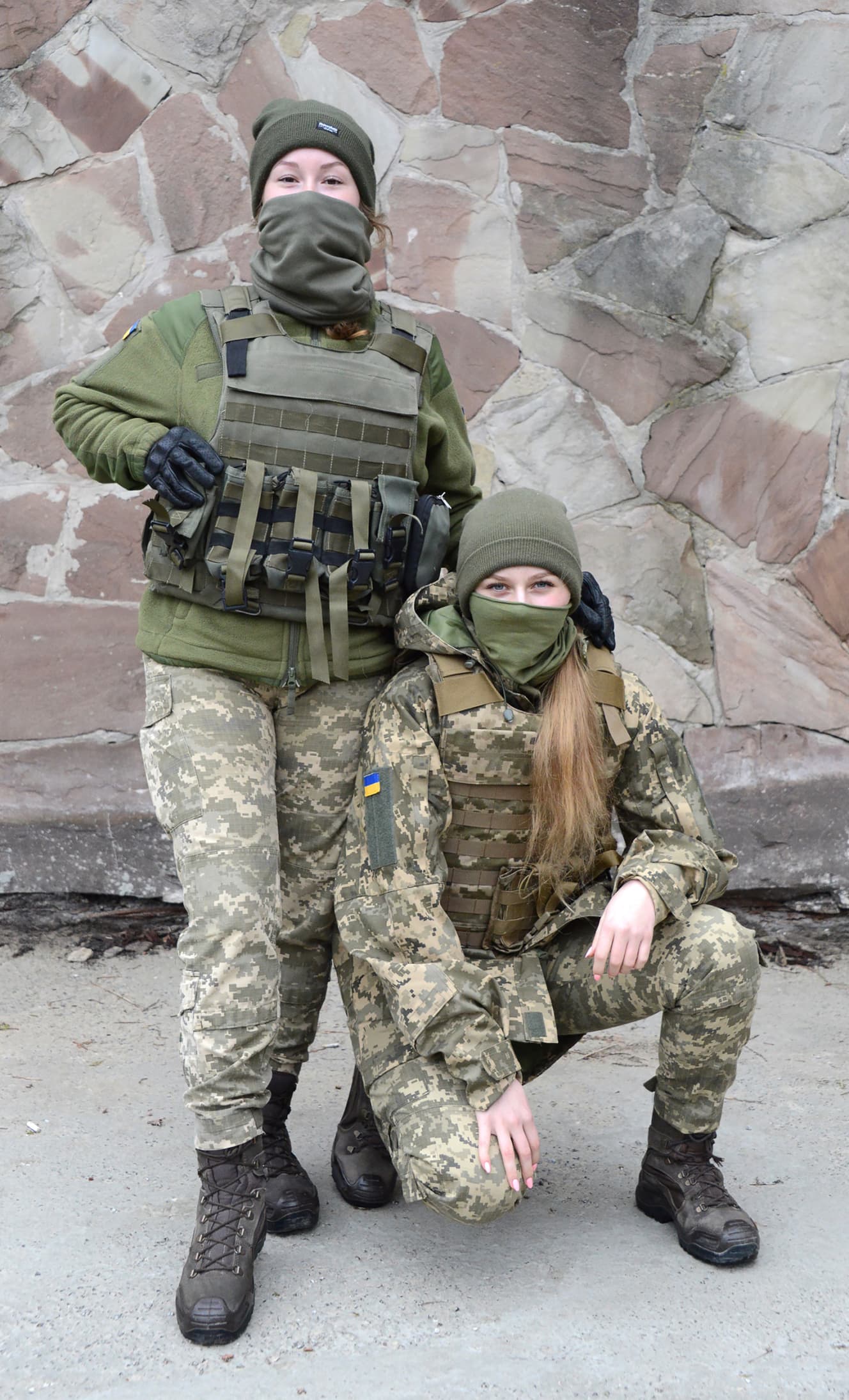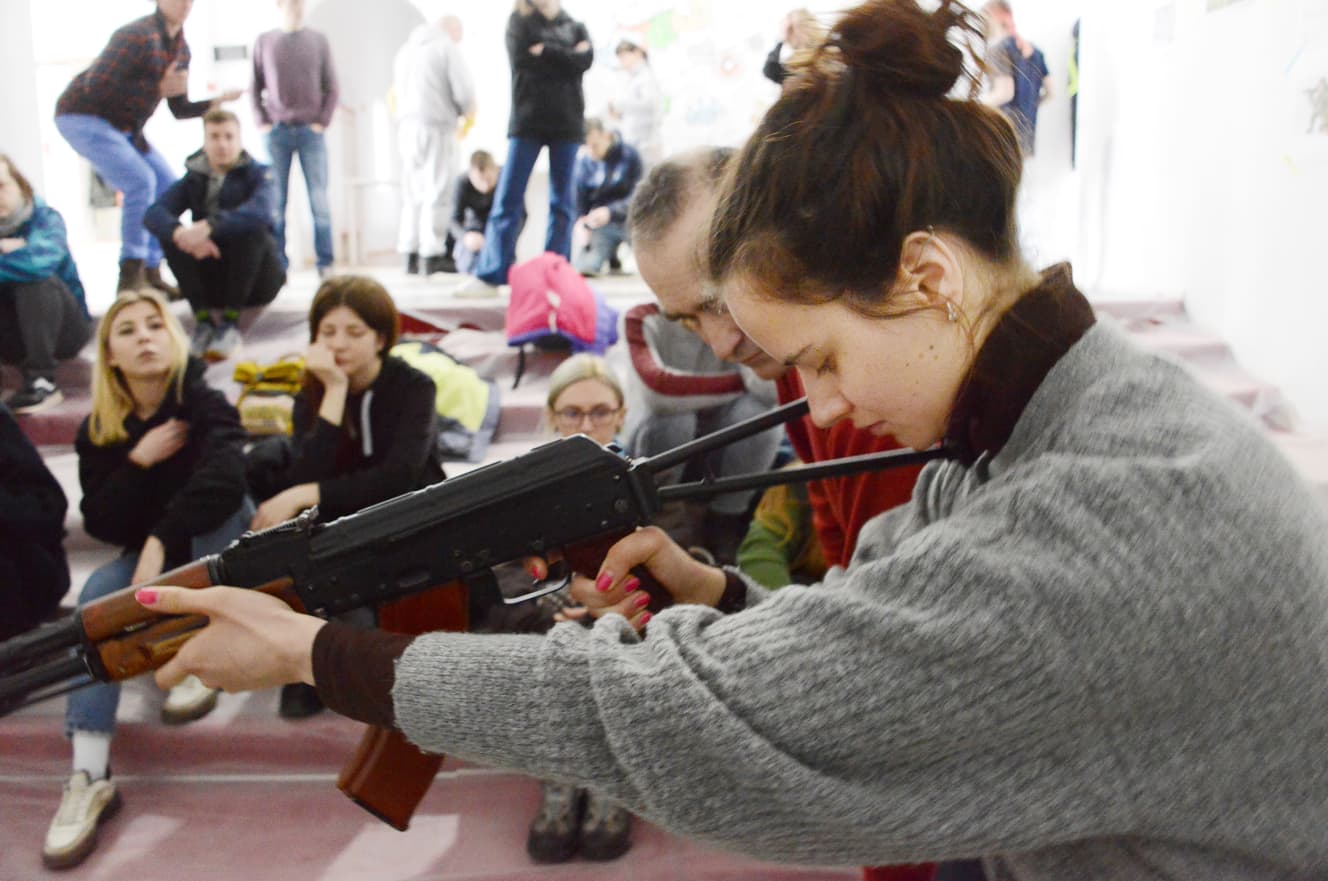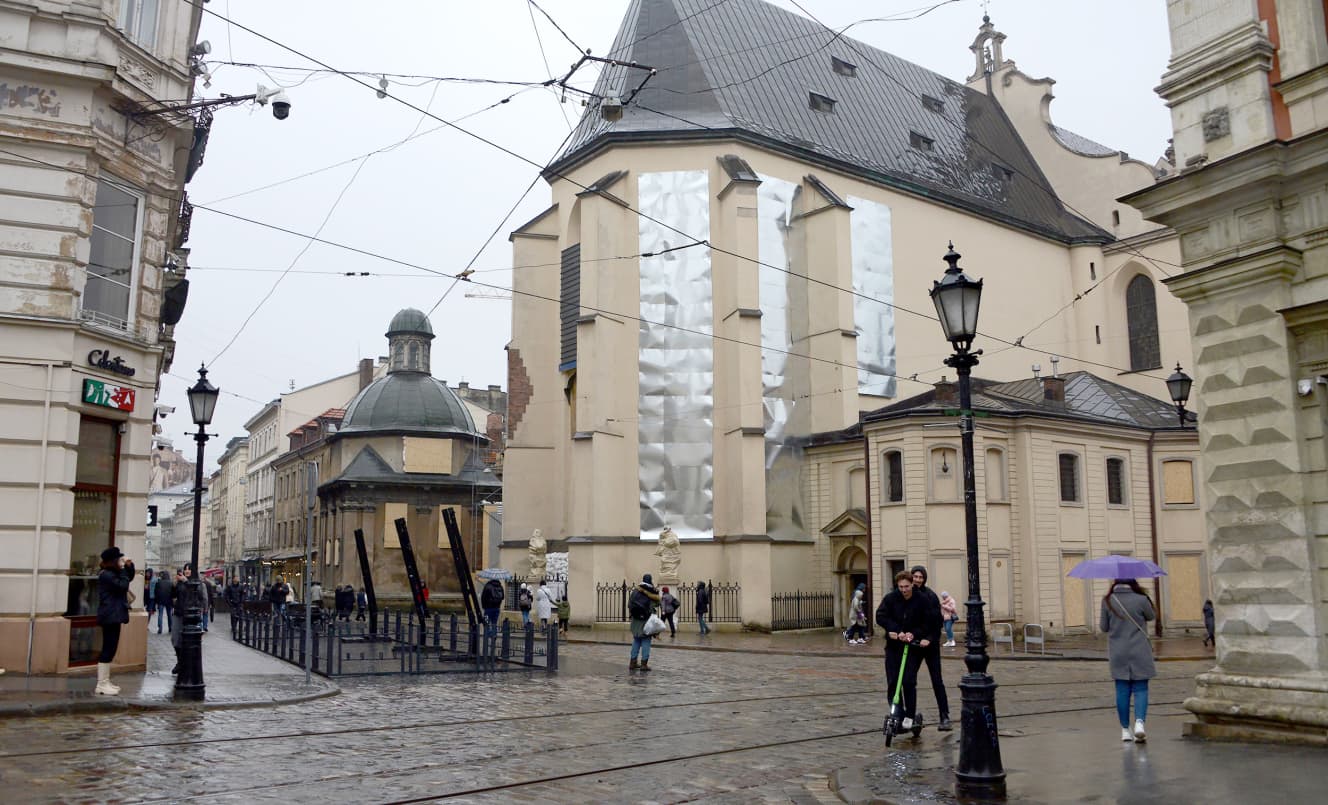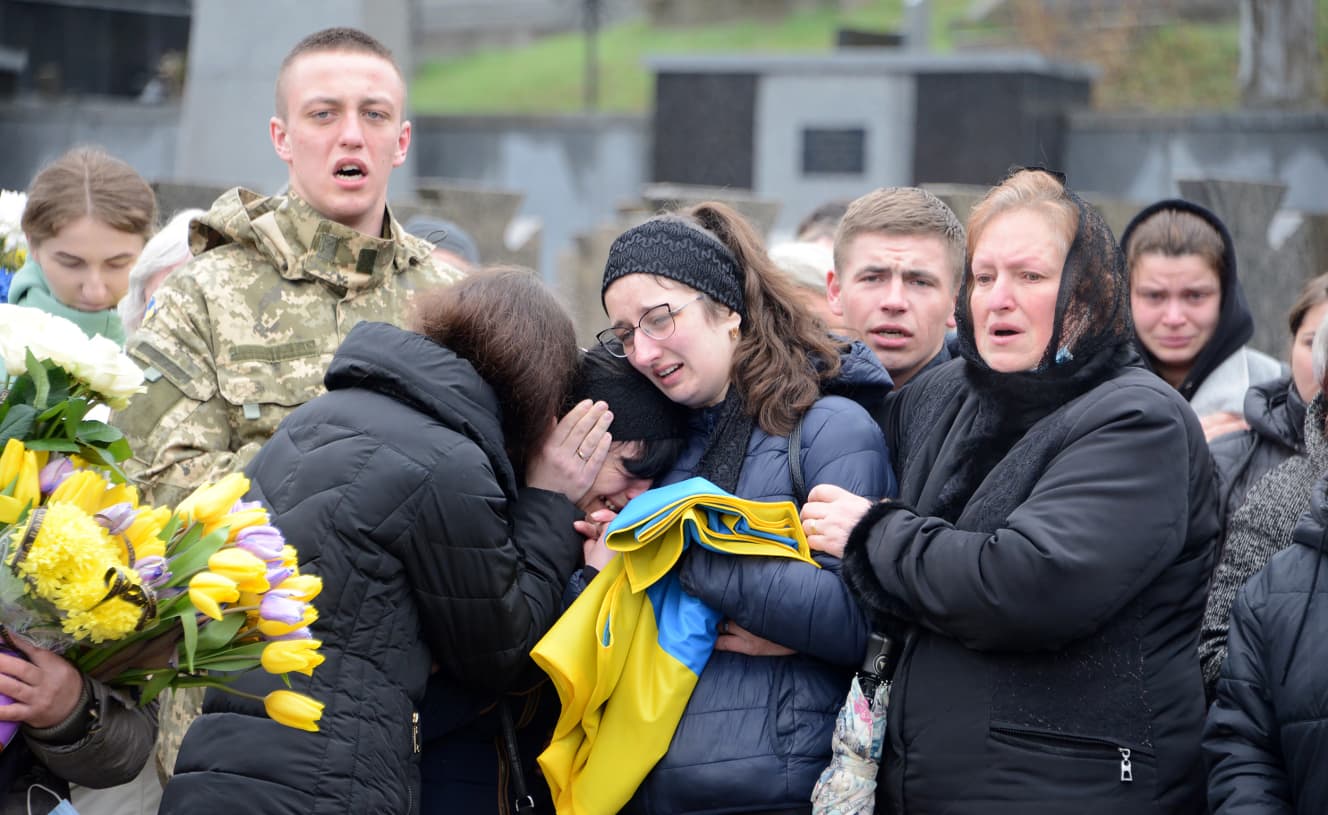True Feelings of a Female College Student Soldier Who Volunteered for the Ukrainian “Regional Defense Forces
Tense on-site reportage from Poland to Ukraine: "Everyday Life of War" as seen by nonfiction writer Takehide Mizutani.
Citizens learning how to handle Kalashnikov rifles and grenades.

A sharp “click” sound echoed through the crowded classroom-like room.
‘Load the bullets, then fire!
Keep the muzzle pointed down at all times!”
This is the basic patrol stance!”
Following the instructor’s shouts, a young Ukrainian woman was holding a Kalashnikov rifle with a serious look in her eyes. At her side, about 20 men and women were watching, sitting in gymnasiums. The ratio of men to women was 50-50.
This is a training facility in Lviv, a city in western Ukraine. In addition to Kalashnikov handling, there are also courses on how to throw a grenade and military medicine. The facility was opened after the invasion by Russian forces, and approximately 120 to 160 civilians participate per day. The total number of participants so far is approximately 2,000. A person in charge of the facility explains.
The training is free of charge. The training is free of charge, but it does not mean that you will participate in a battle. It is just to learn basic military knowledge to protect yourself.
Anastasia, 23, who had been an actress in the capital city of Kieu before the war broke out, clutched a replica of a hand grenade and listened intently to her instructor’s teachings.
‘Pull the pin, throw it, and it will explode in four seconds.’
Anastasia evacuated to Lviv with her mother. She heard about the military training from a friend and joined it for the safety of her family.
I’ve learned how to use a Kalashnikov a little bit over the course of the day, but I need to practice more,” she said. Now my acting career is on hiatus. This emergency is making me think about whether being an actress is a useful job for people in the first place.”
The streets of Lviv are crowded. At first glance, the scene seems to have returned to normalcy, but the alarm has been sounding day after day since the beginning of April. Wooden planks and other materials have been affixed to the glass windows of the cathedral and churches towering around the City Hall, in preparation for an attack that could happen at any time.
In the city of Lviv, I met two female university students who belong to the regional defense force. The Regional Defense Corps is an organization of civilians under the Ministry of Defense of Ukraine, and its main mission is to provide security to crack down on suspicious persons.
The two college girls were attending the prestigious Khiwo National University. One of them, Miroslava, 21, heard a bomb blast in the early morning of February 24 in Khiu and took refuge with her parents in a metro station; in early March she moved with her mother to Lviv, where her father joined the local defense force.
However, Miroslava, too, decided to join the corps, saying, “I can’t stand by and watch children and women being killed. She now lives in a military base, undergoes daily military training, and patrols the area. He has no days off and needs permission from his superiors to go out. The days when she was enjoying her college life have changed drastically with the war.
Until now, my daily concerns were fashion, cosmetics, and school grades, but the war has changed my outlook on life,” he says. Now I focus more on personal safety and family ties. Yes, my outings are limited, but I can keep in touch with the outside world via the Internet, and when I think about the victims who are suffering more, the current environment is enough for me. It is time for the country to unite to win the war” (Miroslava).
The day after we finished interviewing these women, a funeral service for a soldier was held at a church in the center of Lviv, watched by a large crowd of attendees.
His name was Voladimir, and he was 28 years old when he was killed by tank fire on March 23. He met his wife of the same age when they were university students and married in ’13. They had two daughters. Boradimir had been fighting on the front lines in eastern Ukraine since around ’14, when the Crimean peninsula was annexed, and now he has not returned home. The sad news reached his wife in Germany, where they had taken refuge.
Two days after he was killed in action, I received a phone call from one of my husband’s comrades. I was just taking a walk outdoors, and I cried out in fear of being seen. I had been checking on his safety every day, but I never expected to find him at ……. He was the best husband and father I had ever known. War is truly a terrible thing. I can’t find any other words to describe it now.
Boradimir’s wife wept throughout the funeral, holding the Ukrainian flag in her arms. One by one, the coffins of soldiers who lost their lives on the battlefield are being brought to the cemetery.
Click here for Mr. Takehide Mizutani’s YouTube channel !



From the April 22, 2022 issue of FRIDAY
Interview and text: Takehide Mizutani